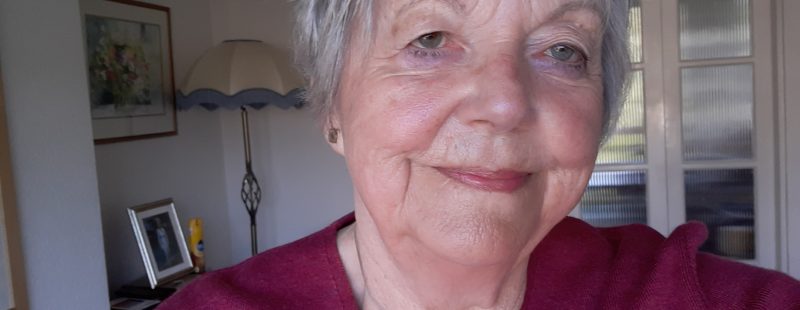Shelagh Marshall OBE is Chair of Age Action Alliance’s Loneliness and Isolation Working Group. Back in March 2020, she shared her story of loneliness and bereavement after losing her daughter. Since then, Coronavirus has forced us into lockdown and deprived many older people from seeing their families. In this blog, Shelagh shares how she’s staying in touch.
The importance of connection
“Reading the most recent blogs on the Campaign’s website, and it’s clear how Coronavirus has emphasised what we already knew about the importance of connection and the profound need for making meaningful connections with those around us.
“While our bodies age, we can continue to learn throughout our lives.”
For older people, already often categorised as lonely, the lockdown will have only served to emphasise their situation. I am in my eighties and began lockdown by using the telephone to connect with my grandchildren. But last week, my eldest granddaughter asked me if I would use a video link (‘Zoom’) to talk to her.
Embracing her world of technology
It is particularly important that I connect with my two grand-daughters as my own daughter, their Mother, died two years ago so we need each other now more than ever. That’s why I am so glad to have embraced her world of technology.
The Covid situation has provided me, and others, with a huge opportunity to take a fresh look at how we can encourage older people to get online for socialising, for fun, and for connecting with others. It serves as a timely reminder that while our bodies age, we can continue to learn throughout our lives – unless we develop serious conditions such as dementia.
Helping older people get online
Research led by Leela Damodaran at Loughborough University has looked at ‘the barriers’ and ‘the facilitators’ to learning when encouraging older people to use a computer. Based on their findings, the best solution was Community based ICT learning support, delivered by individuals (including peer-to-peer), in an informal social setting such as in public libraries and village halls.
A policy briefing was developed in 2018 to help local government to implement these solutions. The aim was to raise awareness, inspire action and provide practical advice and recommendations to enable everyone in society to embrace the digital world and participate it with confidence.
“For older people, already often categorised as lonely, the lockdown will have only served to emphasise their situation.”
However, although a great deal of money and effort has been spent on digital inclusion, intervention schemes and projects over the last fifteen years, Ofcom reports that 13% of adults in the UK are still not online.
Practise makes perfect
Like befriending, long term, on-going support to promote digital participation is needed to give confidence. Being an older person simply means you will need to practise more! Since lockdown, older people in my village have joined virtual church services and prayer meetings and are seeking help to download ‘Zoom’.
As for me, although I still miss seeing them in person, I cherish my regular ‘Zoom’ calls with my grandchildren. And I am pleased to say, working with my computer has enabled me to continue supporting the Campaign’s work throughout the lockdown. I am digital, by choice!





No comments on this article yet. Please feel free to submit a comment below.
By submitting a comment you grant Campaign to End Loneliness a perpetual license to reproduce your words and name/web site in attribution. Inappropriate and irrelevant comments will be removed at an admin's discretion. Your email is used for verification purposes only, it will never be shared.